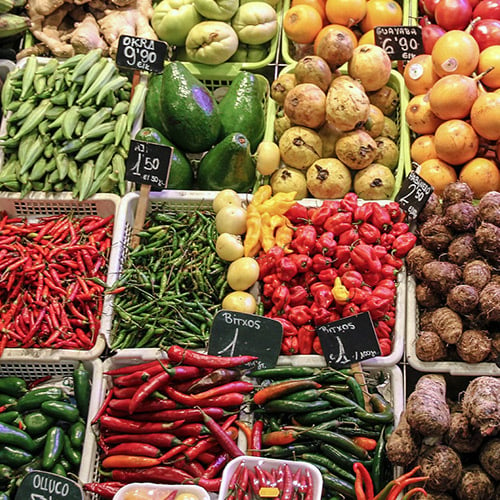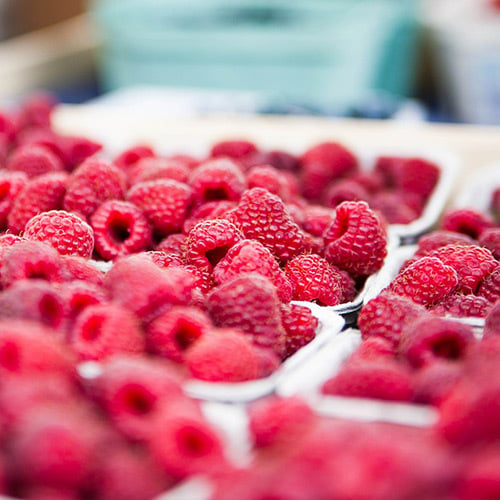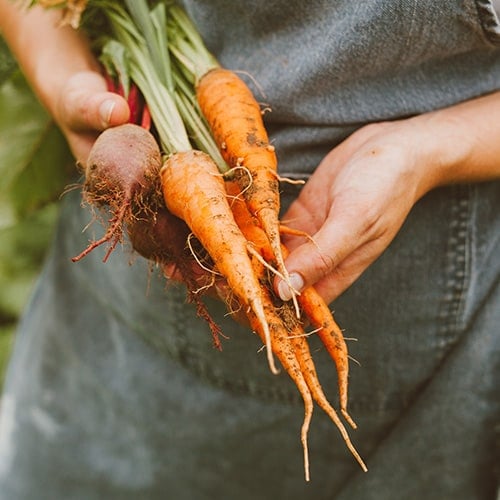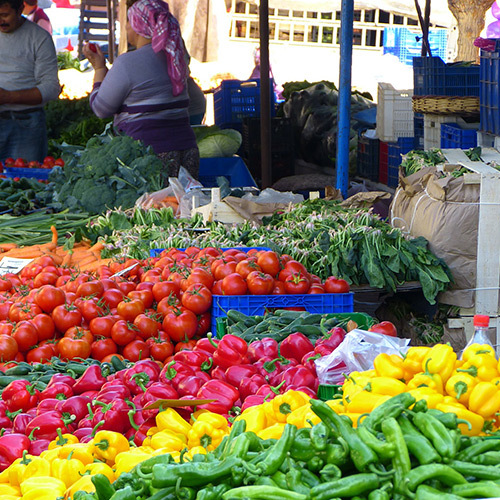
Local food sourcing for restaurants is a strategic operational shift that moves beyond a foodservice marketing trend to directly connect your kitchen with nearby producers. It's a tangible approach to securing fresher ingredients, strengthening supply chain resilience, and crafting a unique menu story. However, navigating the realities of cost, seasonality, and consistent supply requires a practical framework, not just good intentions. Below, we offer a clear, actionable guide for building a locally sourced program that aligns with your financial and operational goals.
What Is the Difference Between Organic, Local, and Farm to Table?
"Organic," "local," and "farm-to-table" are distinct operational terms with specific implications for your sourcing strategy and bottom line. Understanding these differences is critical for accurate menu labeling, managing food costs, and building credible partnerships with your suppliers. Confusing and mislabeling them can lead to miscommunication in the kitchen and mistrust from paying customers.
What Is Organic Food?

Organic is a federally regulated certification governed by strict USDA standards. For a product to be labeled organic, it must be produced on farms that avoid most synthetic fertilizers and pesticides, practice ecological soil management, and raise animals without antibiotics or hormones in living conditions that accommodate their natural behaviors. When you're sourcing organic food, it means a verifiable, but often premium-priced, ingredient with a specific set of production guarantees.
What Is Locally Sourced Food?
"Local" is a geographic term without a singular federal definition for marketing, though the USDA uses a "400-mile" ceiling as a general guideline. In practice, most consumer and trade understanding of "local" falls within a much tighter radius, typically 100 to 150 miles from your restaurant. This flexibility allows you to define "local" based on your region's agricultural landscape, but it also requires clear communication about your chosen sourcing radius to avoid customer ambiguity.
What Is Farm to Table Food?
Farm-to-table is a sourcing model, not a certification, defined by a direct food procurement path from local farms to your restaurant. This approach intentionally shortens the supply chain, which naturally prioritizes seasonal availability. For your menu, this means your offerings will frequently shift with harvest cycles, requiring proactive menu engineering and a close, collaborative relationship with your farm partners.
Benefits of Local Food Sourcing
The benefits of quality local restaurant food sourcing translate into tangible operational advantages that directly impact your menu's appeal and your bottom line. Moving beyond conventional supply chains to prioritize superior ingredients is a strategic business decision that enhances customer satisfaction and strengthens your market position. This approach fundamentally shifts your relationship with ingredients from a commodity to a core component of your brand identity.

- Menu Quality and Seasonality: Ingredients sourced at their peak from nearby farms deliver unmatched flavor and texture, allowing the food itself to become your primary marketing tool. This inherent freshness not only elevates every dish but also naturally guides your menu engineering through the year, creating a dynamic dining experience that encourages repeat business.
- Brand and Community Impact: Direct investment in local producers circulates revenue within your regional economy and builds resilient partnerships with farmers. These relationships secure your access to the best products while authentically rooting your restaurant as a committed community partner, a story that resonates deeply with today's consumers.
- Sustainability Signals: A refined sourcing strategy inherently promotes environmental and social sustainability through shorter transport distances, support for farms practicing soil-conscious crop rotation, and contribution to a stable agricultural workforce. This demonstrates a holistic operational integrity that extends beyond the plate.
Drawbacks of Organic and Locally Sourced Food
The drawbacks of organic and locally sourced food are primarily operational hurdles that directly challenge a restaurant's consistency, cost control, and supply chain management. While the benefits are significant, a successful program requires chefs and operators to navigate a landscape defined by higher price points and unpredictable availability. Ignoring these practical realities is the fastest way to erode profit margins and create kitchen instability.
- Price Premiums and Spoilage Risk: Sourcing from smaller-scale producers often incurs higher per-unit costs, while the absence of industrial preservatives can shorten the shelf life of fresh ingredients. This combination demands meticulous inventory management to prevent increased food spend from spoilage.
- Limited Selection and Crop Variability: Your menu is subject to the constraints of your region's climate and a farmer's harvest, which can be disrupted by weather or pests. You cannot always get everything you want, in the quantity you need, year-round.
- Menu Agility Required: Chefs must be prepared to pivot menus on short notice when a key ingredient becomes unavailable or a crop comes in early. This demands creativity and flexibility from the entire kitchen staff, moving away from set, static menus.
- Authenticity and Claim-Risk: As consumers grow more skeptical of "greenwashing," vague claims like "local" can backfire if you cannot substantiate them. Maintaining authenticity requires diligent record-keeping and specific menu language to avoid reputational damage.
Potential Local Food Sourcing Pathways
Food sourcing pathways for restaurants are the practical channels through which you connect your kitchen to local producers, each with distinct operational trade-offs. Selecting the right mix is a strategic decision that balances cost, volume, and logistical complexity against the desire for peak freshness and unique ingredients. A successful local program often involves a hybrid approach, leveraging different pathways for different menu items to optimize your entire operation.

- Direct-to-Consumer Programs: Tapping into existing community-supported agriculture networks or farmers' markets allows you to secure hyper-seasonal, often unique produce directly, fostering strong farmer relationships. This pathway offers maximum freshness and menu storytelling potential, though it often requires flexible menu planning to accommodate what's available.
- Direct-to-Retailer Channels: Partnering with broadline distributors that have local programs or regional food hubs provides a more scalable and logistically simple solution. This model blends the efficiency of a traditional supply chain with local provenance, ideal for core menu items you need in consistent volume.
- Hyper-Local Production: Developing on-site gardens or rooftop bee hives delivers high-quality ingredients and a powerful marketing narrative. However, this pathway requires significant upfront investment and labor; it only pencils out financially for high-volume, high-margin items like specialty herbs or microgreens.
How to Build a Locally Sourced Food Program
Building a locally sourced food program requires an operational blueprint that transforms a well-intentioned concept into a financially viable and executable system. This involves setting clear internal standards, establishing rigorous supplier protocols, and engineering your entire menu strategy around the reality of seasonal harvests. A successful program is about integrating local ingredients where they deliver the most value to your kitchen and your customers.
- Define Your Terms Internally: Before engaging suppliers, establish your restaurant's specific threshold for "local," such as a 150-mile radius, and document what certifications like "organic" require. This creates a clear internal compass for purchasing and prevents ambiguous menu language that could mislead guests.
- Vet Suppliers with an Operational Checklist: Evaluate potential farm partners on delivery cadence, their policy on order substitutions, and verifiable proof of organic certification. This due diligence ensures reliability and protects your menu planning from unexpected shortages.
- Engineer Menus for Strategic Seasonality: Structure your menu around a core of stable, broadly sourced items, while utilizing local produce for featured specials and rotating sides. This approach maintains operational consistency while highlighting seasonal peaks.
- Implement Blended Cost Controls: Manage food cost by blending high-impact local staples with conventionally sourced base ingredients. Prioritize buying items locally when they are in peak season and abundant, while outsourcing out-of-season or cost-prohibitive items through standard distributors.
- Adapt Food Safety for Perishability: Institute strict wash protocols for fresh produce and prioritize faster inventory turnover for highly perishable local items. This proactive handling reduces waste and mitigates the spoilage risk inherent in shorter supply chain goods.
How to Communicate Your Food Sourcing to Customers
Communicating your food sourcing to customers is a critical step in building brand identity and justifies potential price points. Effective communication is not about grand, unsubstantiated claims, but rather about specific, credible language that builds trust and enhances the dining experience. Done correctly, it turns your menu and staff into powerful storytellers for your brand's commitment to sustainable, local sourcing.

- Craft Precise Menu Language: Use phrases like “local when in season,” “USDA organic where noted,” or “sourced within 150 miles of our kitchen” to make accurate, defensible claims. This specificity manages customer expectations, avoids overpromising, and demonstrates a transparent, knowledgeable operation.
- Provide Staff with Clear Talking Points: Equip your service team with a brief explanation for why a popular 86'd item was a special local feature, turning a potential negative into a positive reinforcement of your sourcing standards. This ensures a consistent narrative and educates guests seamlessly during service.
- Maintain a Dynamic Transparency Page: Dedicate a section of your website or menu to list partner farms, your definition of "local," and a note that the list updates throughout the year. This provides tangible evidence of your commitments and builds lasting credibility with discerning customers.
Integrating local ingredients is a strategic operational choice that balances superior plate appeal with real-world supply chain variables. By defining your standards, building resilient supplier relationships, and crafting an honest narrative for your guests, you transform this approach into a sustainable business asset. This disciplined framework allows you to leverage local sourcing for genuine culinary distinction, building a sustainable, strong brand that opens more ways for your restaurant to go green.





